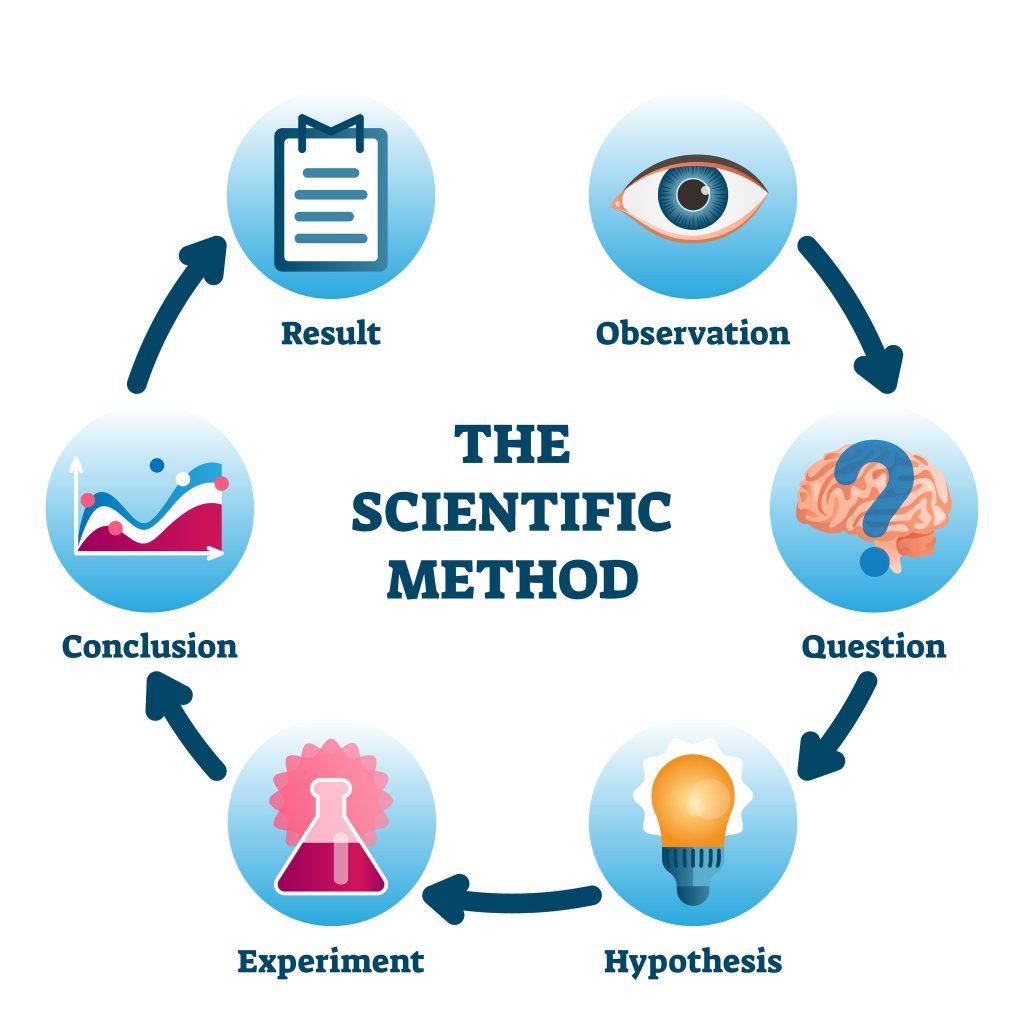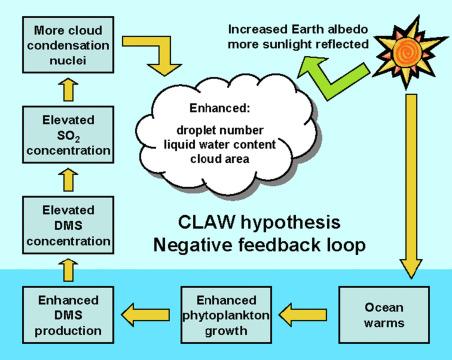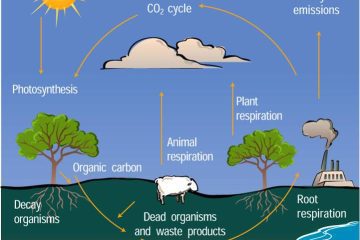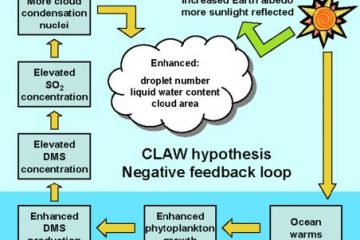In a world where scientific theories shape our understanding of the universe, the Gaia hypothesis has long captivated minds with its portrayal of Earth as a living, self-regulating organism. However, as with any scientific idea, scrutiny and critical analysis are essential components of progress. Join us on a journey through the depths of the Gaia hypothesis as we delve into the realms of scientific inquiry to explore the evidence both supporting and challenging this intriguing concept. Let’s unravel the mysteries together and unveil the hidden truths behind the Gaia hypothesis.
Table of Contents
- Exploring the Scientific Critique of the Gaia Hypothesis
- Unpacking Misconceptions Surrounding Gaia Theory
- Debunking Myths About Gaia Hypothesis in Ecology
- Recommendations for Moving Forward After Gaia Hypothesis Deconstruction
- Q&A
- Concluding Remarks


Exploring the Scientific Critique of the Gaia Hypothesis
Have you ever pondered the intricacies of the Gaia Hypothesis and its scientific validity? Let’s delve into the fascinating world of ecological theories and examine the critical viewpoints surrounding this controversial concept.
One of the primary contentions against the Gaia Hypothesis is the lack of empirical evidence supporting the idea of Earth as a self-regulating organism. Scientists argue that while the interconnectedness of Earth’s systems is evident, attributing intentionality and consciousness to these processes remains a subject of debate.


Unpacking Misconceptions Surrounding Gaia Theory
The Gaia Theory, often misconceived as attributing Earth a form of consciousness, is a scientific hypothesis proposing that the Earth functions as a self-regulating system. Contrary to popular belief, this theory does not suggest the planet is a sentient being but rather emphasizes the interconnectedness of all living and non-living entities on Earth. Understanding the Gaia Theory entails exploring how various components of the Earth system interact to maintain a stable environment conducive to life.
One common misconception surrounding the Gaia Theory is the idea that it implies the Earth is capable of making intentional decisions to preserve itself. In reality, the theory highlights the natural processes and feedback mechanisms that work together to regulate the planet’s conditions. By recognizing the intricate balance between geological, chemical, and biological elements, we can gain a deeper appreciation for the Earth as a complex and dynamic system that has evolved over billions of years.
Debunking Myths About Gaia Hypothesis in Ecology
Many misconceptions surround the Gaia hypothesis in ecology, leading to widespread myths that often cloud the true essence of this intriguing theory. It’s essential to debunk these myths to gain a clearer understanding of the interconnectedness between organisms and their environment.
Let’s unravel some common myths about the Gaia hypothesis:
- Myth 1: Gaia theory proposes that the Earth is a sentient being with consciousness.
- Myth 2: The Gaia hypothesis suggests that the Earth is static and unchanging.
| Myth | Reality |
|---|---|
| Gaia theory implies Earth is alive. | The hypothesis highlights Earth’s self-regulating systems, not consciousness. |
| Gaia hypothesis supports a fixed Earth. | The theory emphasizes a dynamic Earth in constant flux. |


Recommendations for Moving Forward After Gaia Hypothesis Deconstruction
After the deconstruction of the Gaia Hypothesis, it’s essential to reflect on the implications and consider alternative perspectives. Here are some recommendations for moving forward:
- Embrace Complexity: Instead of viewing Earth as a single entity, explore the intricate interactions between its various components.
- Encourage Collaboration: Foster interdisciplinary discussions to address environmental challenges from multiple angles.
- Adopt Sustainable Practices: Implement eco-friendly initiatives to mitigate the impact of human activities on the planet.
Furthermore, it’s crucial to acknowledge the limitations of existing theories and remain open to new discoveries that may reshape our understanding of the interconnectedness of life on Earth. By remaining flexible and receptive to evolving scientific knowledge, we can navigate the post-Gaia landscape with curiosity and innovation.
Q&A
Q&A: Gaia Hypothesis Debunked
1. What is the Gaia Hypothesis?
The Gaia Hypothesis, proposed by scientist James Lovelock in the 1970s, suggests that the Earth functions as a self-regulating organism where living organisms and their inorganic surroundings interact to maintain the conditions necessary for life.
2. What are the main arguments against the Gaia Hypothesis?
Critics of the Gaia Hypothesis argue that the Earth does not possess the characteristics of a single, self-regulating organism and that the interactions between living organisms and the environment are too complex to be considered as a single entity.
3. How has scientific research contradicted the Gaia Hypothesis?
Recent studies have revealed that the Earth’s systems are not as tightly interconnected as originally proposed by the Gaia Hypothesis. Instead, researchers have found that the Earth’s ecosystems are highly dynamic and influenced by multiple factors beyond simple self-regulation.
4. Are there alternative theories to the Gaia Hypothesis?
While the Gaia Hypothesis has faced criticism, alternative theories such as the Earth System Science approach have emerged to explain the complex interactions between living organisms and the environment without the need for a singular, self-regulating entity.
5. What implications does the debunking of the Gaia Hypothesis have on environmental science?
The debunking of the Gaia Hypothesis highlights the importance of considering the Earth’s ecosystems as dynamic and ever-changing entities that require a more nuanced understanding of their interactions and processes. This shift in perspective has significant implications for research and policymaking in environmental science.
6. How can we move forward from the Gaia Hypothesis in our understanding of the Earth’s systems?
Moving forward, researchers can build upon the insights gained from the Gaia Hypothesis and its subsequent debunking to develop more comprehensive models that capture the complexity and interconnectedness of the Earth’s ecosystems. By incorporating a multidisciplinary approach, we can deepen our understanding of how living organisms and the environment interact on a global scale.
Concluding Remarks
while the Gaia hypothesis has stirred fascinating debates and sparked curiosity about the interconnectedness of life on Earth, the notion of a self-regulating, conscious planet remains a subject of contention among scientists and scholars. As we navigate the realms of ecological theory and scientific inquiry, it’s essential to approach such concepts with an open mind, curiosity, and a critical eye. Whether the Gaia hypothesis stands the test of time or evolves into new interpretations, the journey of exploration and understanding of our planet’s intricate systems continues to inspire awe and wonder. Let us continue to delve deeper into the mysteries of our Earth, embracing both skepticism and reverence for the intricate web of life that sustains us all.




0 Comments